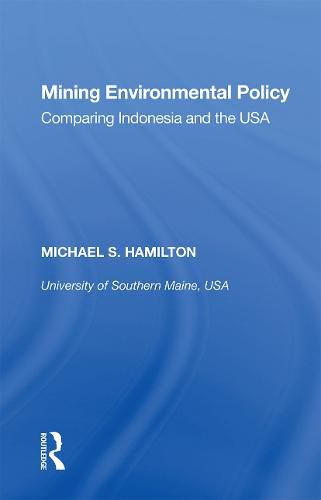Readings Newsletter
Become a Readings Member to make your shopping experience even easier.
Sign in or sign up for free!
You’re not far away from qualifying for FREE standard shipping within Australia
You’ve qualified for FREE standard shipping within Australia
The cart is loading…






Illustrated by a detailed comparative examination of mining regulations and environmental impact assessment (EIA) in the USA (the second largest producer of coal in the world) and Indonesia (the eighth largest and most rapidly growing), this book argues that the degree of policy integration often determines the success or failure in controlling environmental effects of mining operations. Comparison of surface mining regulation in the two countries provides some stark contrasts, some surprising results concerning the diffusion of policy innovations from one country to another, and instances of both policy success and failure. The book provides significant new insights into international relations and comparative environmental policy, particularly as they affect rainforests and biodiversity. It also suggests that if mining environmental policy were to be effectively implemented, the environmental degradation caused need not be permanent.
$9.00 standard shipping within Australia
FREE standard shipping within Australia for orders over $100.00
Express & International shipping calculated at checkout
Illustrated by a detailed comparative examination of mining regulations and environmental impact assessment (EIA) in the USA (the second largest producer of coal in the world) and Indonesia (the eighth largest and most rapidly growing), this book argues that the degree of policy integration often determines the success or failure in controlling environmental effects of mining operations. Comparison of surface mining regulation in the two countries provides some stark contrasts, some surprising results concerning the diffusion of policy innovations from one country to another, and instances of both policy success and failure. The book provides significant new insights into international relations and comparative environmental policy, particularly as they affect rainforests and biodiversity. It also suggests that if mining environmental policy were to be effectively implemented, the environmental degradation caused need not be permanent.